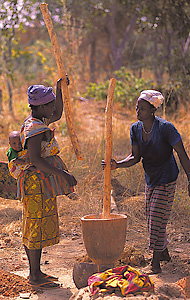Custom is a practice or a way of doing things that has been handed down from one generation to the next. Customs are part of the culture shared by members of a social group. Many customs begin because people like to know what to expect in social situations. Like all cultural traits, customs are learned behavior and differ among different peoples. For example, eating is a requirement for all people, but table manners, such as eating with a utensil or using the fingers, and customs of food preparation vary among social groups.

Practices that change frequently are called fashions. They include dance styles, clothing styles, and slang expressions. Fashions that quickly come and go are called fads. A fashion may become a custom through long usage. For example, eating with a fork was a fashion in Europe during the 1500’s, but it is now a custom throughout the Western world.
Customs last partly because people often find it easier to conform than to face the disapproval of their social group. Such disapproval may range from mild ridicule to severe punishment. Many customs produce only mild reactions when broken. Such customs include many wedding traditions and rules of etiquette. A person who departs from such customs may encounter surprise, annoyance, or scorn.
Important customs that reflect a society’s ideas of right and wrong are called mores. Examples include the reaction of people to murder or cannibalism, which produce anger and shock.
In isolated, nonindustrial communities, customs may remain essentially unchanged for generations. People in such societies often believe the old ways are best. In modern industrial societies, however, customs change more easily. Many factors, including new inventions and contact with other cultures, may lead to such changes.
